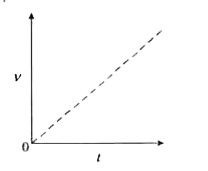When an object cools down, heat is withdrawn from it. Does the entrophy of the object decrease in this process? If yes, is it a violation of the second law of thermodynamics stated in terms of increased in entrophy?
Step by step video & image solution for When an object cools down, heat is withdrawn from it. Does the entrophy of the object decrease in this process? If yes, is it a violation of the second law of thermodynamics stated in terms of increased in entrophy? by Physics experts to help you in doubts & scoring excellent marks in Class 11 exams.
Updated on:21/07/2023Topper's Solved these Questions
Similar Questions
A refrigerator transfers heat from the cold coling coils to the warm surroundings. Is it against the second law of thermodynamics? Justify your answer?
View SolutionThe potential energy of a freely falling object decreases progressively. Does this violate the law of conservation of energy ? Why ?
View Solution
Knowledge Check
Assertion : When a glass of hot milk is placed in a room and allowed to cool, its entropy decreases.
Reason : Allowing hot object to cool does not violate the second law of thermodynamics.AIf both Assertion & Reason are true and the reason is the correct explanation of the assertion.Bif both assertion and reason are true but reason is not the correct expalanation of the assertionCif assertion is true , but reason is falseDboth assertion and reason are false statements.When you freeze water in your freezer to make ice cubes, the amount of order in the molecules of water increases. However, second law of thermodynamics says that the amount of order in an isolated system can only stay constant or decrease with time. How can this making of ice violates second law
ABecause water expands during ice formationBBecause ice formation takes place at 0∘CCBecause ice is solidDBecause ice cubes do not constitute isolated systemWhen you freeze water in your freezer to make ice cubes,the amount of order in the molecules ofwater increases. However , second law of thermodynamics says that the amount of order in the isolated system can only stay constant or decrease with time. How can thus making of ice violate second law ?
Abecause water expands during ice formationBbecause ice formation takes place at 0∘CCbecause ice issolidDbecause ice cubes do not constitute isolated system.
When we heat an object, it expands. Is work done by the object in this process? Is heat given to the object equal to the increase in its internal energy?
View SolutionWhen does the flow of heat from a hot object to a cold object stop ?
View SolutionAsssertion: It is not possible for a system, unaided by an external agency to transfer heat from a body at lower temp. to another at a higher temp.
Reason: It is not possible to violate the second law of thermodynamics.
View SolutionThe figure shows the speed as a function of time for an object in free fall near the surface of the earth. The object was dropped from rest in a long evacuated cylinder .

If the same object were released in air, the magnitude of its acceleration would begin at the free-fall value, but it would decrease continuously is zero as the object continued to fall. For which one of the choices given does the solid line best represent the speed of the object as a function of time when it is dropped from rest in air ?
Note: The dashed line shows the free-fall under vacuum graph for comparison.
View SolutionConsider the statement (A) and (B) and identify the carrect answers.
A . First law of thermodynamics specifics the consitions under which a body can use its heat energy to produce the work.
B. Second law of thermodynamics states that heat always flows from haot body to cold body the itself .
View Solution
